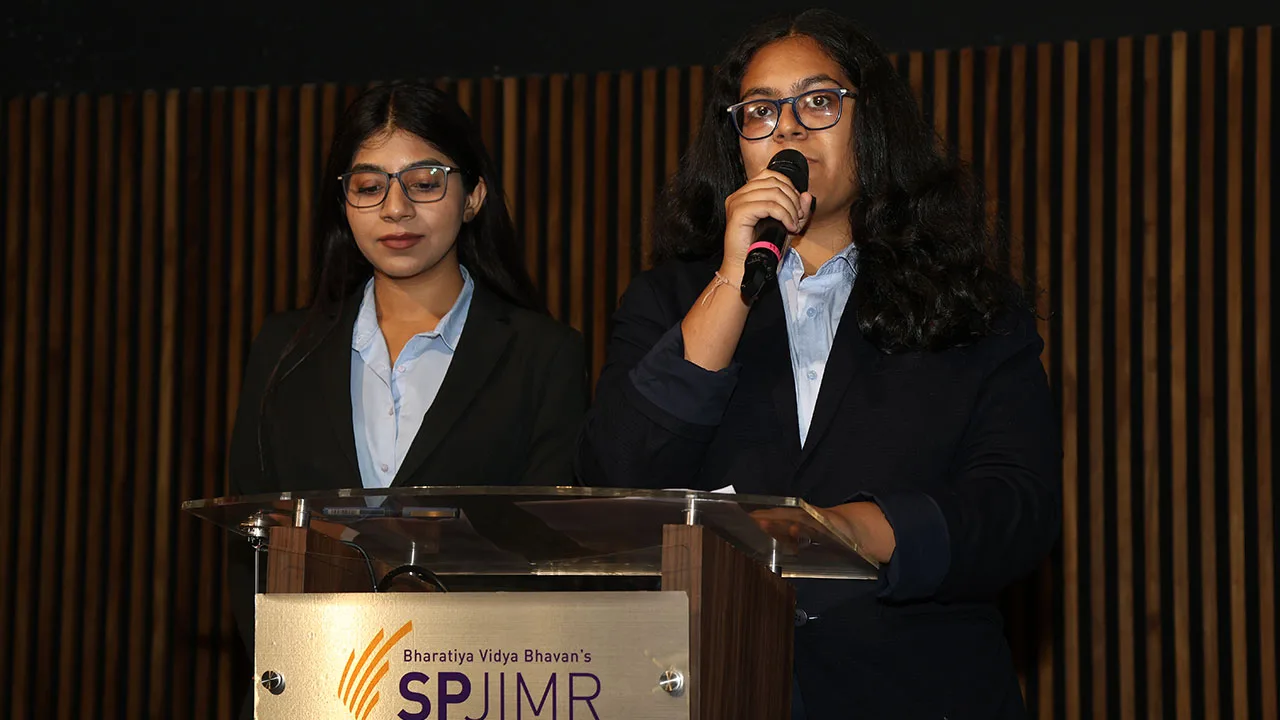Find the programme that meets your requirements and aspirations.
Apply nowStudent blogs
- SPJIMR
- Blog
- The festive flipside of MBA@SPJIMR!
The festive flipside of MBA@SPJIMR!
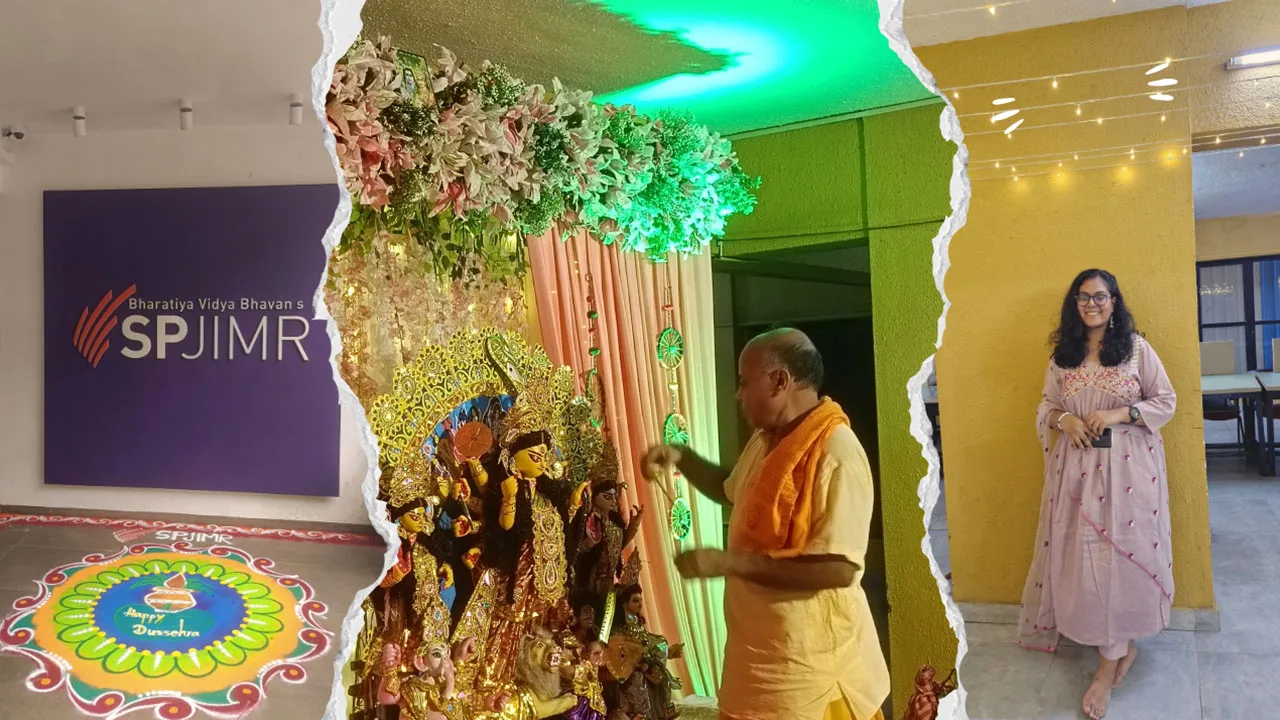
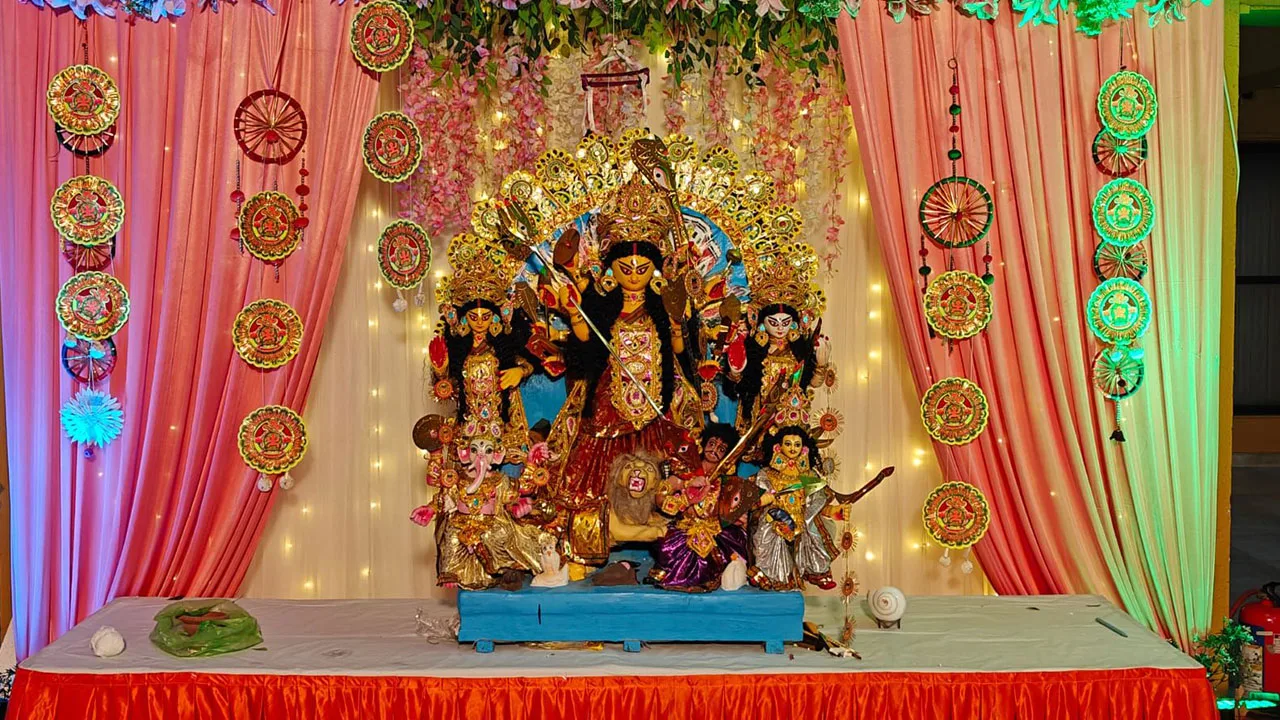
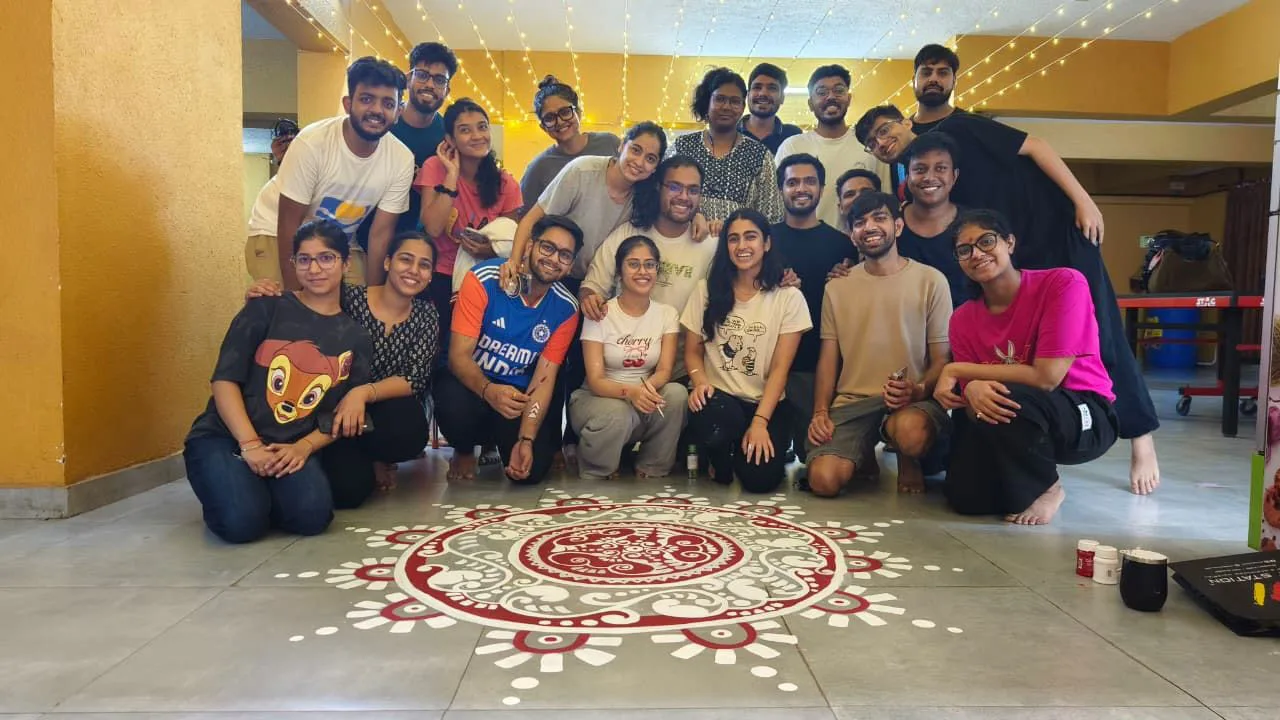
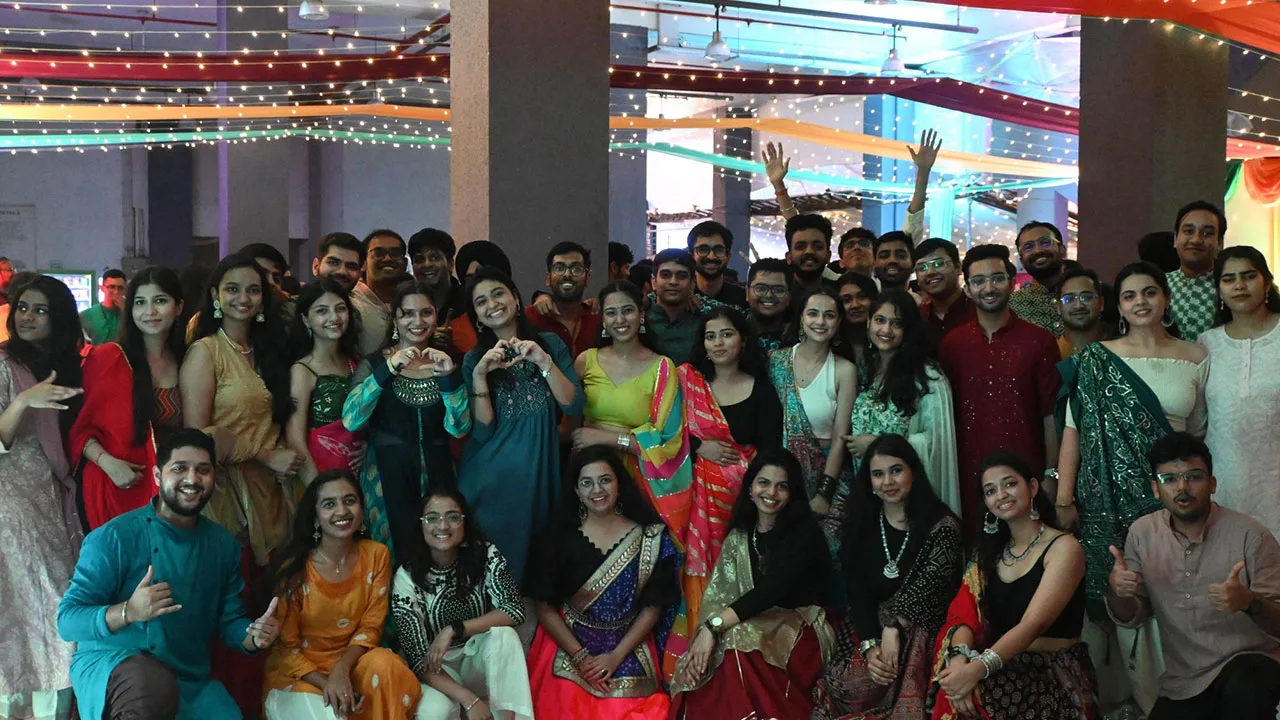
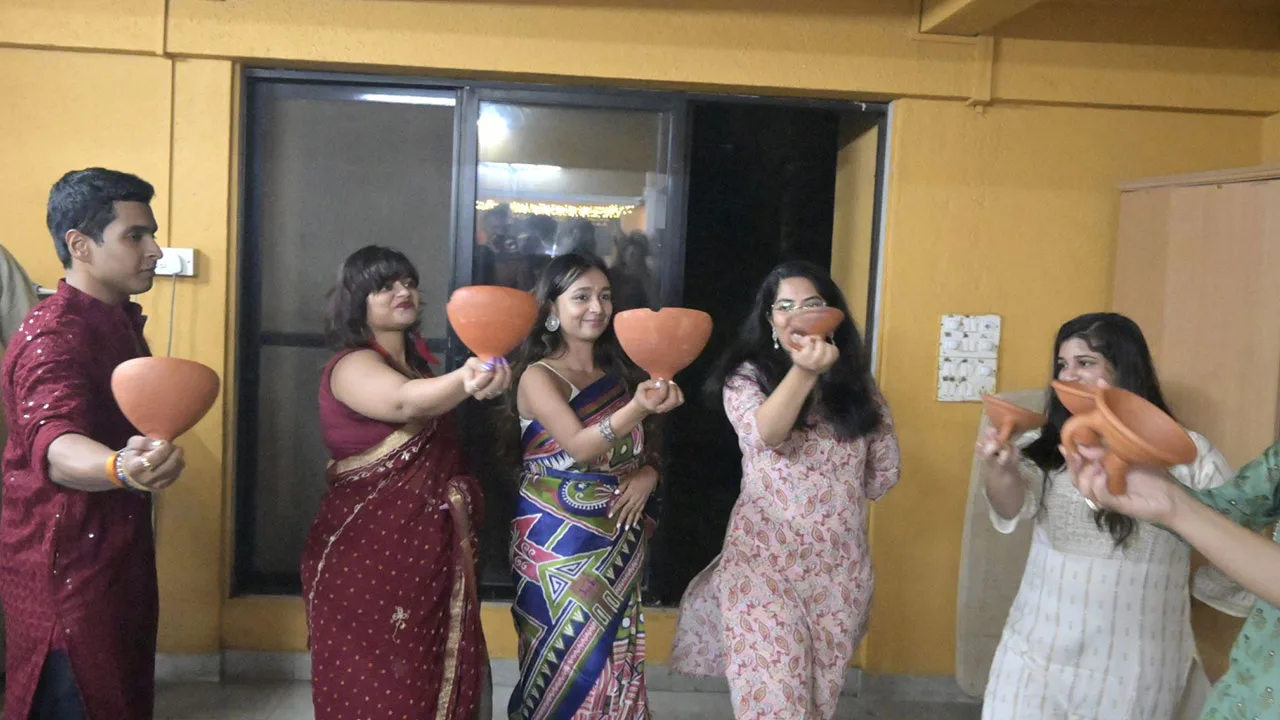
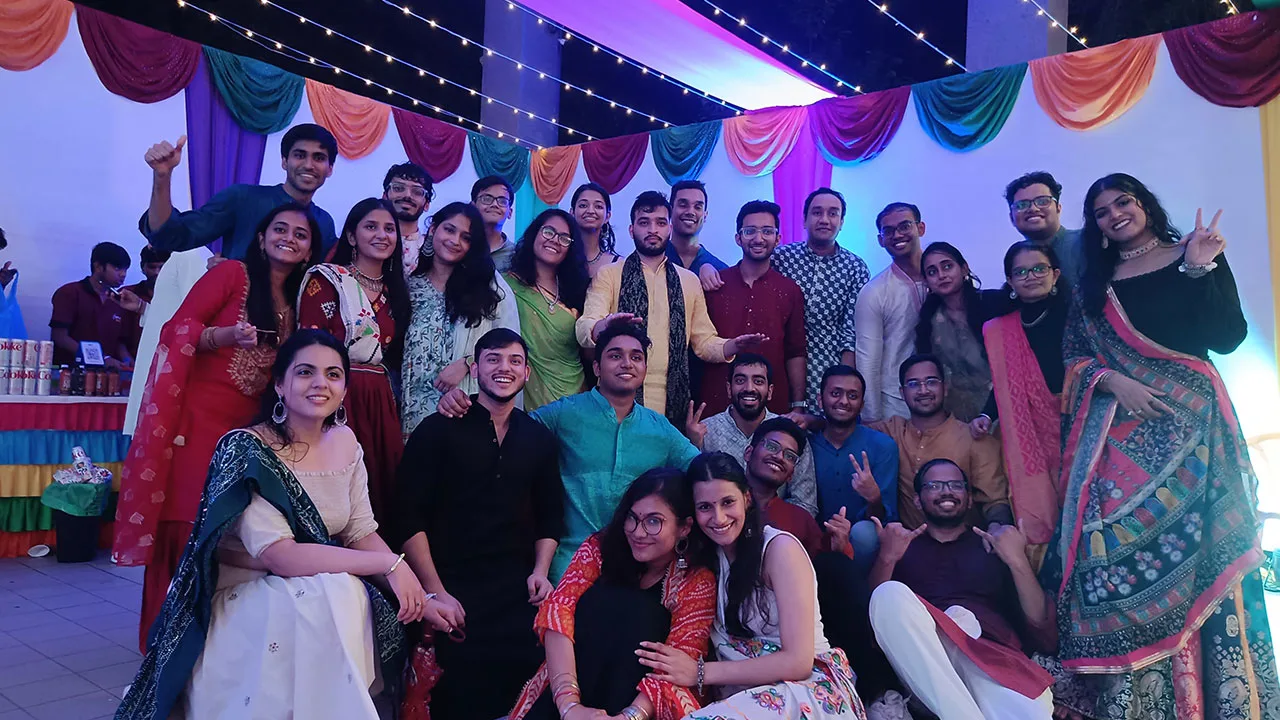
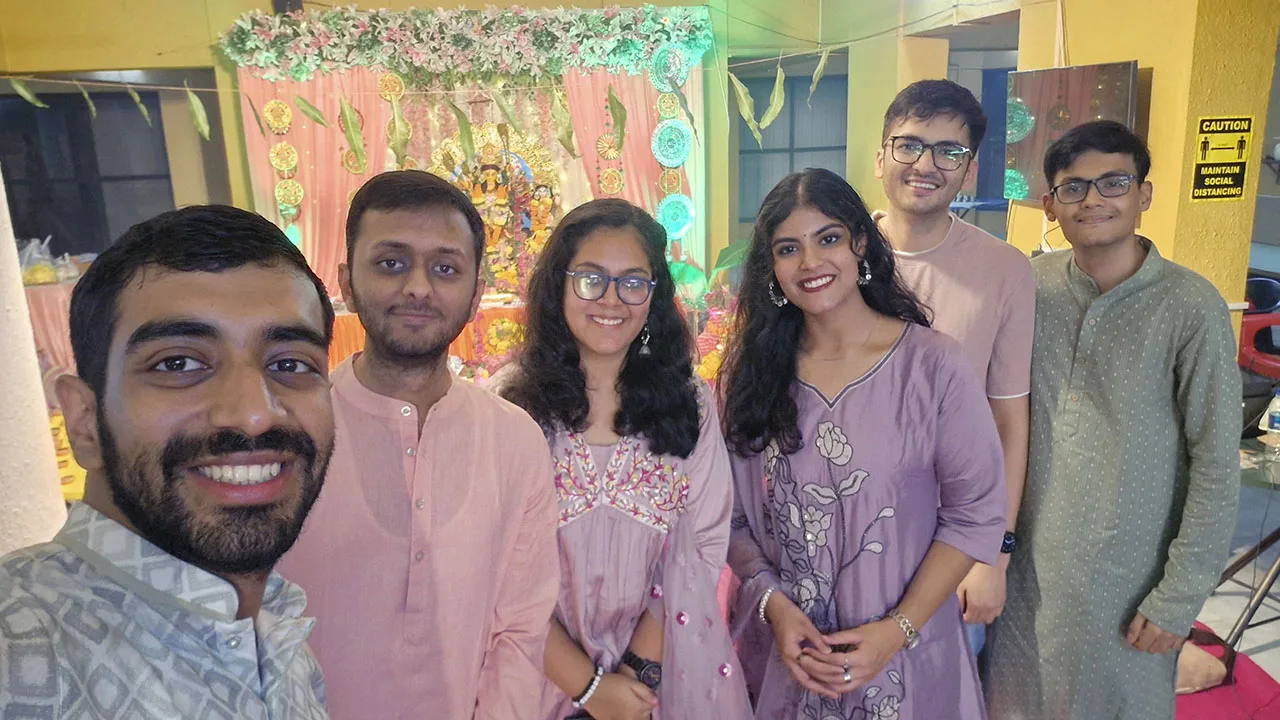
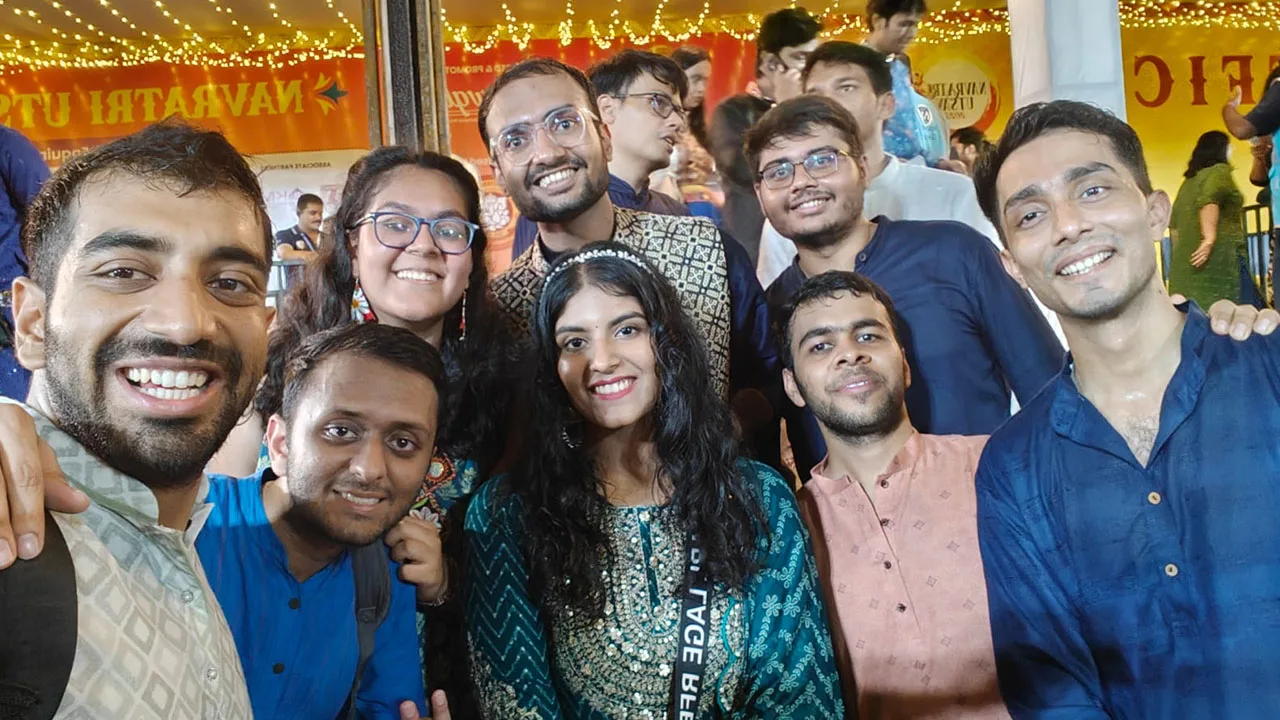
363 students from different states! These figures reflected the cultural diversity of our cohort. I’m sure, like me, all of us come to the campus with an expectation of experiencing various cultures and their celebrations. However, when our expectations matched reality and we experienced the festivities first-hand, it elevated our spirits!
If I had to describe the last week in two phrases, they would be:
1) Shubho Durga Pujo 🙂
2) E Haloooo 😉
I, Dhun Rathod, coming from Vadodara, Gujarat, was quite familiar with the second one—Garba, it essentially runs in our veins, but when it came to Durga Puja, I was on the other end of the spectrum. Here is how both of these experiences were for me!
Durga Pujo (especially Maha Ashtami)
While I had heard stories of Durga Puja celebrations from my Nani, who spent a considerable amount of time in the East, I had never been a part of these celebrations. My Bengali batchmates had put their heart and soul into planning the weeklong celebrations beginning from Shashti (the sixth day) to Dashami (the tenth day). I was a little more excited for the event as one of my friends here is also a Bengali. I started asking him all about what they do throughout the entire week and what rituals are undertaken as part of it.
Practising the Dhunuchi Naach, being a part of the Pushpanjali, attending the aartis, relishing the grand Bengali feast, witnessing the Sindoor Khela and finally bidding Maa Durga farewell with the customary Visarjan—the common area of our hostel block B29 witnessed fresh shared memories, smiles and prayers as we came together to celebrate the divine spirit of Maa Durga.
Navratri (Garba Night at SPJIMR)
Now, this was the event I had truly been waiting for! What made it more special was that my friends were eager to learn Garba, the traditional dance from Gujarat. A new WhatsApp group was formed, ‘Garba Normies!’ where we decided the timings and venue of our practice. For three consecutive days, I had the privilege of teaching Garba to some of my friends. On their way to practice, they would often bring along a lot more people, and seeing such large numbers made me extremely happy!
I never thought of Garba as a tough dance form, but while I taught them, I realised how distinct our ethnicities are and how the spirit of just enjoying as well as learning something new helps us all bond together deeply. With shared laughter, exponentially increasing expertise and zero judgements, we shook legs, gearing up for the Garba Night at SPJIMR. A pre-test to this day was when most of our batch booked tickets to an external garba event, experiencing Navratri in its true sense!
Lastly, on the day of Garba Night, all that practice came to play, and we danced for around 3.5 hours straight! Sore feet, weary arms, tired body, but happy faces, satisfied heart and a heightened spirit—sum up the essence of Garba Night pretty well!
My takeaways from the festive week
- Being open to experiences causes no harm 🙂 While I observed some people to be reserved when it came to donning the get-up of a different ethnicity, I realised how important it is to do so. I learned a great deal more about Bengali culture, but more importantly, I gained a deeper understanding of how Gujarati culture is perceived as well. Photos, videos, and rituals were exchanged, but so was knowledge! And thus, overall, it became part of the core memories we made at the campus.
- Your words of appreciation have an impact more than you think! We couldn’t thank the organisation committee of the Durga Pujo celebrations enough for putting up such a fantastic show. Ultimately, they were doing it out of their love for Goddess Durga and for all of us to experience a part of it. On the reverse, when random people came up to me and thanked me for teaching them Garba, I felt proud of my ethnicity. It motivated me to continue giving back, even in the smallest ways possible. Certain words of appreciation do go a long way!
- Respect is at the core of every festive occasion. Some traditions might be completely new to us, and that is the beauty. Approaching each day with a learning mindset and respecting the ideals, beliefs and practices of each other – that is the best way to understand, experience and feel a completely different culture at its best!
- When it is about fun with friends, don’t wait for tomorrow! Enjoyment and academics often go hand-in-hand when you’re at a B-School. I often prioritised one, but eventually came to understand that the best moments arise when we efficiently juggle between both! Had we procrastinated our Garba practices or skipped some of the celebrations of the Durga Puja week, the experiences, fun, and memories wouldn’t have been the same! All in all, it was a power-packed week, experiencing the festive flipside of Life@SPJIMR!
About Post Graduate Diploma in Management (PGDM)
SPJIMR’s Post Graduate Diploma in Management (PGDM) is a two-year, full-time residential programme equivalent to an MBA. PGDM is approved by AICTE, accredited by NBA and AMBA, UK and consistently rates among India’s top 10 management programmes. The programme offers a holistic approach to leadership development with its innovative blend of classroom learning and thoughtfully curated immersive experiences.


